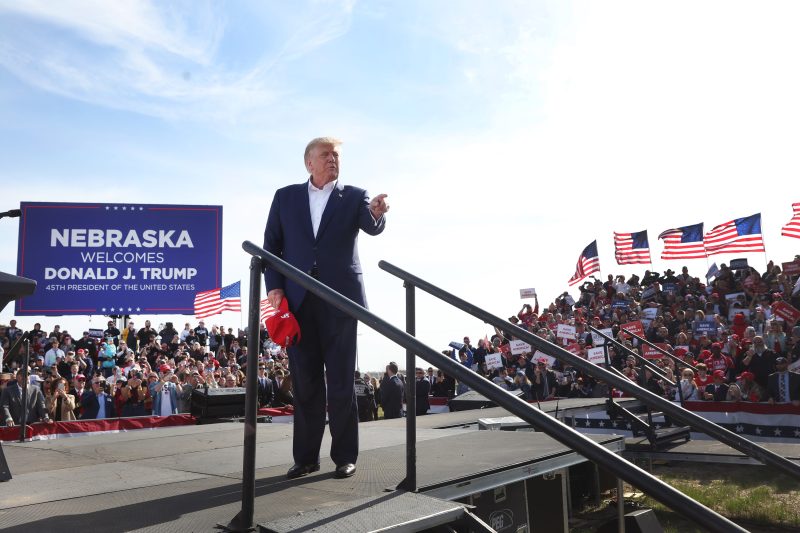In the realm of U.S. politics, every election cycle unfolds with its unique set of events and controversies. One such contentious issue that has emerged in recent times is the electoral vote allocation system, gaining particular attention in Nebraska. Former President Donald Trump has intensified his efforts to push for changes in how electoral votes are allocated in the state. This move stems from Trump’s belief that Nebraska should adopt a winner-takes-all approach, rather than the current system of allocating votes based on the winner of each congressional district.
Nebraska’s current system is distinctive as it is one of only two states, along with Maine, that does not adhere to the winner-takes-all model for allocating electoral votes. Instead, the state allocates its five electoral votes based on the winner of the popular vote in each of its three congressional districts, with two additional votes going to the overall state winner. This method allows for a more proportional representation of voter preferences within the state.
The debate over the allocation of electoral votes has reignited significant controversy, with Trump and his supporters advocating for a shift towards the winner-takes-all system. Proponents of this change argue that it would better reflect the will of the majority of voters in Nebraska and simplify the process. They assert that the current system could lead to a situation where the overall state winner may not receive the majority of electoral votes if the opposing candidate wins the majority in individual congressional districts.
On the other hand, opponents of this proposed change raise concerns about potential disenfranchisement of voters. They argue that Nebraska’s current system ensures that voices from different regions of the state are represented in the electoral college. Adopting a winner-takes-all approach could result in the suppression of minority viewpoints and create a less inclusive electoral process.
The push for Nebraska to change its electoral vote allocation system is emblematic of the larger debate around the Electoral College in the United States. The Electoral College system has faced criticism for being undemocratic and potentially distorting the will of the popular vote. Trump’s call for reform in Nebraska is just one example of efforts to reshape the electoral process to align with specific political agendas.
As the discussion continues, the future of Nebraska’s electoral vote allocation system remains uncertain. Whether Trump’s push for change gains traction or faces resistance, the outcome will undoubtedly have implications for the broader discourse on electoral reforms in the United States. The trajectory of this debate will not only shape the electoral landscape in Nebraska but also contribute to the ongoing dialogue about the effectiveness and fairness of the Electoral College system as a whole.


























